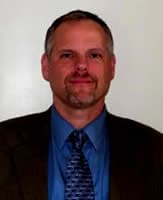
A new master’s program in the UNC Charlotte School of Social Work will make it possible for enrollees to earn a graduate degree as a part-time student while taking many classes remotely.
The School of Social Work in the College of Health and Human Services will begin offering a part-time plan of study for its Master of Social Work (MSW) degree beginning in summer 2016. Created with working professionals in mind, the curriculum is the same as that offered in the full-time MSW program but allows students to earn the degree in three years, rather than two.
The School of Social Work developed the program in concert with conversations with regional program managers and service staff in disciplines that employ social workers.
“Based on these conversations, our graduate program has a strong reputation, but we needed to be more flexible with our course scheduling to accommodate working students,” said Bob Herman-Smith, MSW program director.
As the number of people who are served in institutions has declined, the types of community and social problems social workers witness have grown more complex. Examples include a rising number of homeless children and families, more adults with significant mental health problems who end up in prison and a growing number of older adults who experience addiction to legally prescribed medications. The MSW will allow these social workers to extend their skills sets to work with these complex community problems. The degree also offers these students opportunities to advance in their current workplaces.
“The Department of Social Services prefers MSW social workers for our senior social worker positions. These positions are primary staff positions in both child and adult protective services. As the population of Mecklenburg County grows, so does the demand for our services, and qualified people to fill a growing number of positions,” said Peggy Eagan, director of the Mecklenburg County Department of Social Services.
Herman-Smith, the MSW program director, said his department is sympathetic to the obligations of working professionals interested in pursuing a degree. Classes will be a combination of Saturday face-to-face meetings and asynchronous online meetings. Students also complete internships at least 16 hours per week while they take classes.
In addition to addressing the logistical challenges of taking classes while working, Herman-Smith said the program confronts a fundamental issue in the profession.
“Social work practice is both rewarding and difficult. The research shows that many social workers can cope effectively with the difficult aspects of their work if they feel supported on the job. A big part of that support is being provided with the skills and training needed to deal effectively with complex social problems. Getting the right kinds of support is critical to retention.”
Much of that support will come from employers, but Eagan, the DSS director, said it is also important that universities play a role.
“The College of Health and Human Services has been very interested and responsive to the needs of our community and to those of DSS and our employees. The partnership between CHHS and employers will better prepare our community to respond to the issues facing our neediest neighbors today and in the future.”